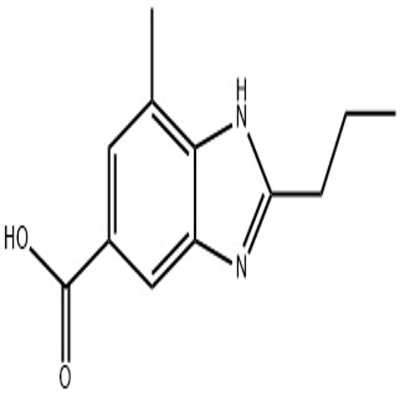-
Categories
-
Pharmaceutical Intermediates
-
Active Pharmaceutical Ingredients
-
Food Additives
- Industrial Coatings
- Agrochemicals
- Dyes and Pigments
- Surfactant
- Flavors and Fragrances
- Chemical Reagents
- Catalyst and Auxiliary
- Natural Products
- Inorganic Chemistry
-
Organic Chemistry
-
Biochemical Engineering
- Analytical Chemistry
-
Cosmetic Ingredient
- Water Treatment Chemical
-
Pharmaceutical Intermediates
Promotion
ECHEMI Mall
Wholesale
Weekly Price
Exhibition
News
-
Trade Service
6-chlorobenzo[b]thiophene, commonly referred to as CBT, is a chemical compound that is used in the production of a variety of industrial and consumer products.
Despite its widespread use, concerns have been raised about the safety of CBT, particularly in the context of the chemical industry.
CBT is classified as a moderately toxic compound, with chronic exposure known to cause skin irritation, respiratory problems, and an increased risk of cancer.
However, the true extent of the risks associated with CBT is not fully understood, and more research is needed to determine the long-term health effects of exposure to this chemical.
One of the primary concerns surrounding the safety of CBT is its potential to cause cancer.
The International Agency for Research on Cancer (IARC) has classified CBT as a possible human carcinogen, based on evidence that it can cause cancer in animals.
While the evidence for CBT's carcinogenic properties in humans is limited, it is still a cause for concern, particularly given the widespread use of this chemical in the chemical industry.
Another safety concern associated with CBT is its potential to cause reproductive and developmental harm.
Studies in animals have shown that CBT can cause birth defects and other reproductive problems, and there is some evidence to suggest that exposure to CBT during pregnancy may be associated with an increased risk of certain birth defects in humans.
In addition to the health risks associated with CBT, there are also concerns about the environmental impact of this chemical.
CBT is highly persistent in the environment, and has been found to accumulate in soil, water, and air.
This can lead to potential ecological impacts, including the contamination of food and water sources.
Despite these safety concerns, CBT remains widely used in the chemical industry.
Many companies in this industry view the potential health and environmental risks of CBT as an acceptable cost of doing business, and are not taking the necessary steps to minimize exposure to this chemical.
It is important for workers in the chemical industry who are exposed to CBT to take steps to protect themselves from the potential health risks associated with this chemical.
This may include wearing protective clothing, using ventilation systems to minimize exposure to airborne particles, and following proper safety protocols when handling CBT.
In addition, the public should be aware of the potential risks associated with CBT and exercise caution when in contact with products that contain this chemical.
This may include avoiding contact with industrial or manufacturing sites where CBT is used, and being mindful of the potential risks associated with certain consumer products, such as certain types of dyes and plastics.
In conclusion, while the safety of CBT is a topic of ongoing debate, there is evidence to suggest that exposure to this chemical can cause a range of health problems, including cancer and reproductive harm.
Given the widespread use of CBT in the chemical industry, it is important for workers and the public to take steps to minimize their exposure to this chemical and for industry leaders to prioritize the health and safety of their workers and the environment.





![benzyl N-{2-[4-(4,4,5,5-tetramethyl-1,3,2-dioxaborolan-2-yl)phenyl]ethyl}carbamate](https://file.echemi.com/fileManage/upload/goodpicture/20210823/m20210823171124543.jpg)

